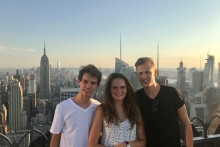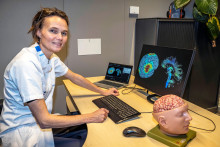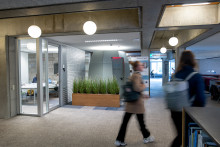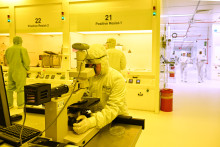Project Hoboken is a research and education program focused on urban resilience. Every year since 2016 it allows UT students to spend nine weeks in New York City. This year’s participants are third year Bachelor students Niek ten Brinke (Civil Engineering), Sonja Möbius (European Public Administration) and Justus Baumann (European Public Administration).
‘We are all working on diverse research projects, but they are all related to the topic of urban resilience,’ explains Niek ten Brinke, calling from New York City. ‘There is more demand for research and solutions in this field due to increasing urbanization and climate change, which causes the population to be more vulnerable.’
Barriers
Ten Brinke’s project is about barriers in the implementation of flood protection measures in the New York City area. ‘I’m working with Hurricane Sandy as a case study. I want to see which barriers slow down the process of making a city more resilient. This question came directly from a company involved in providing new flood protection in Hoboken, so the problems caused by Sandy in 2012 could be at least partly prevented in the future. For instance, I’ve found out that the process of new design implementation is very sensitive to political changes. The findings can allow stakeholders to improve their approach in the future.’
Social connectedness
Sonja Möbius and Justus Baumann are working together on one research project about the role of social connectedness in urban resilience. ‘This topic has been neglected so far,’ says Baumann. ‘But we see that also many mental and social problems occur after disasters. In some neighborhoods people come together and rebuild everything, they become more connected, but in others not. Why?’
‘We are working with the case study of Hurricane Harvey that hit Houston in 2017,’ continues Möbius. ‘Back then the 911 line broke down, and so people used social media a lot to give help or ask for help. We therefore want to use social media to measure social connectedness and its role in urban resilience. We hope to publish a paper on this in collaboration with the Stevens Institute.’
‘We’ve had a great time’
The students’ time in New Jersey is quickly coming to an end. Leaving this week, what do they think of their stay? ‘It’s been a wonderful chance to broaden your knowledge and experience working in an international environment. We learnt a lot about the resilience theme and also about the culture here in the U.S.,’ says Ten Brinke. Sonja Möbius adds: ‘We’ve had a great time. We’re definitely not looking forward to going back just yet.’







